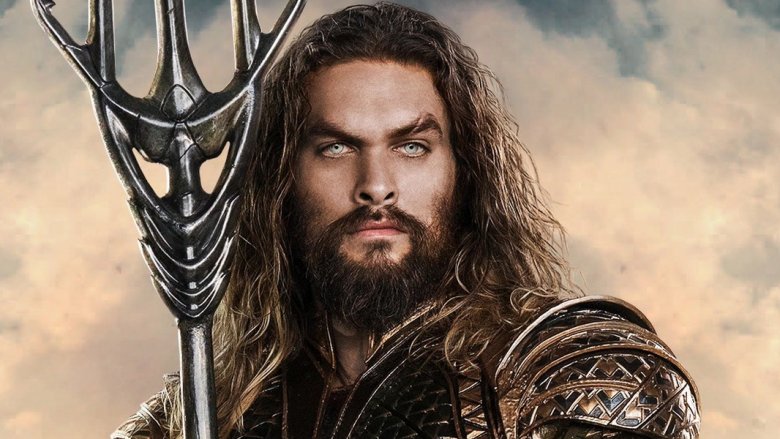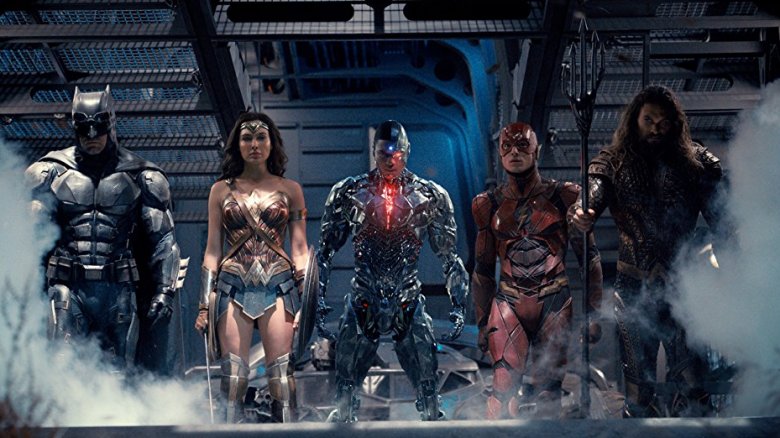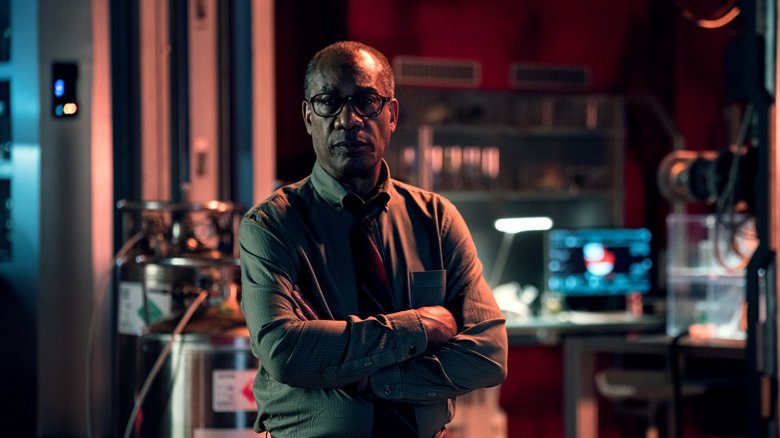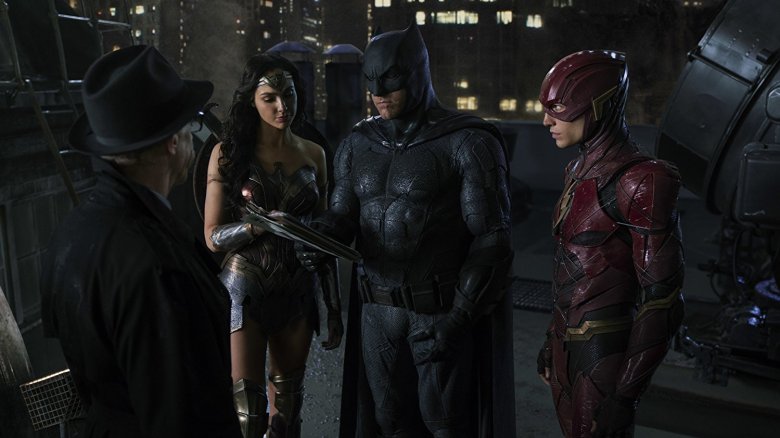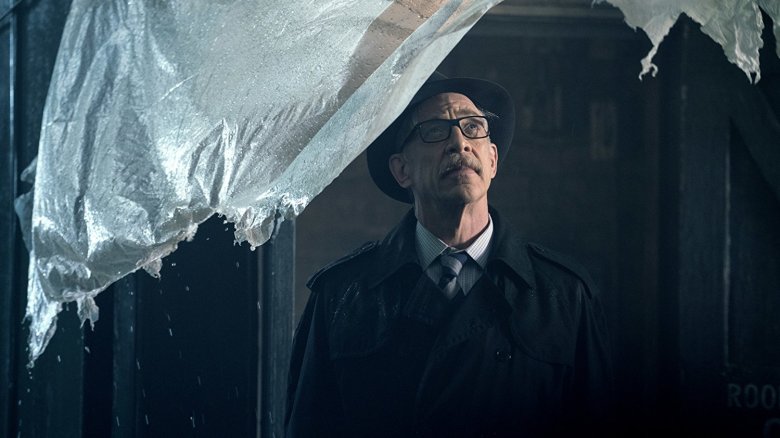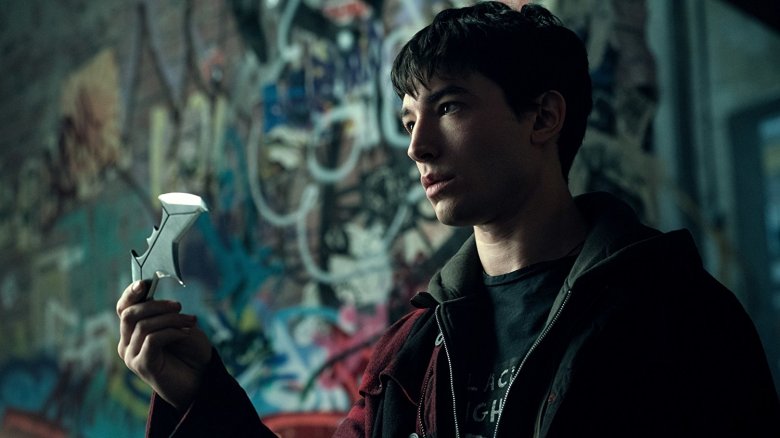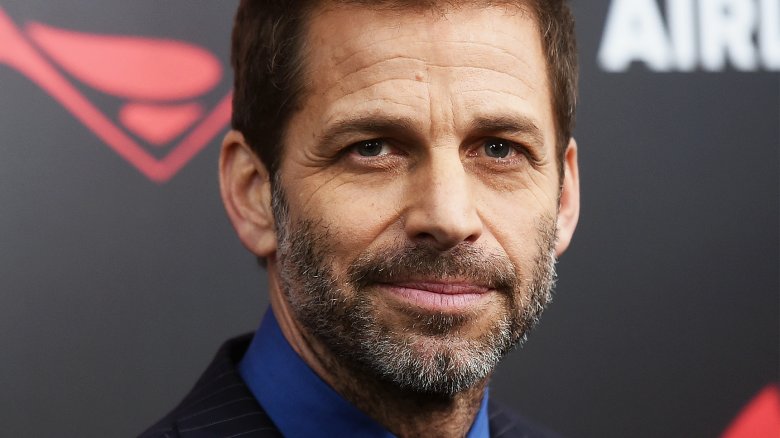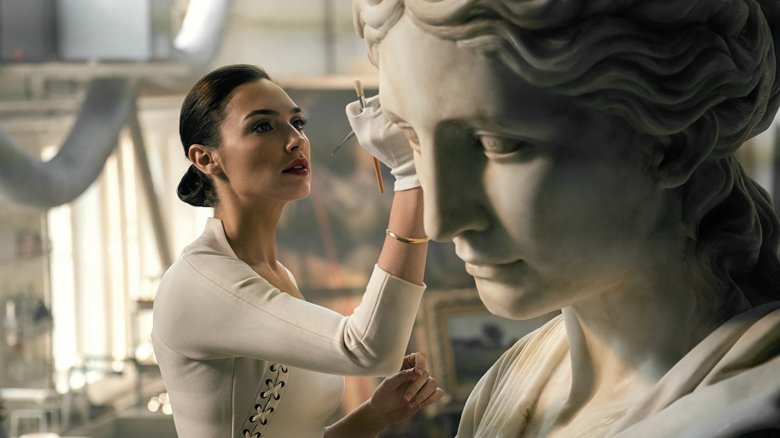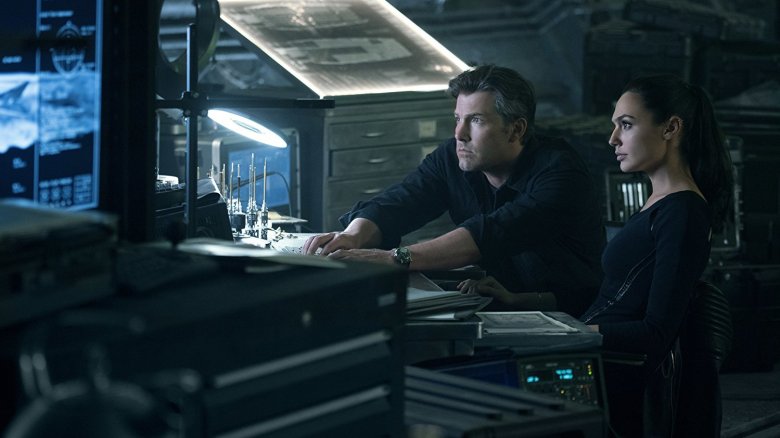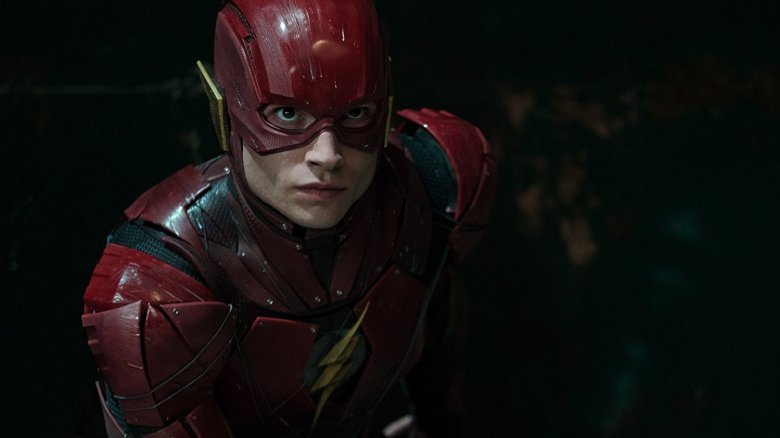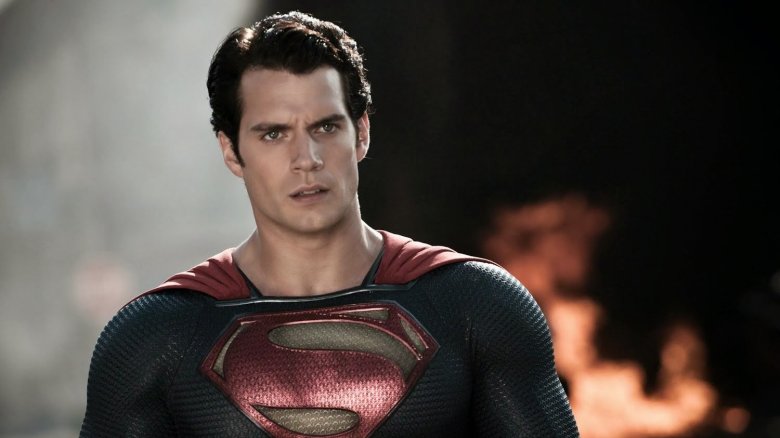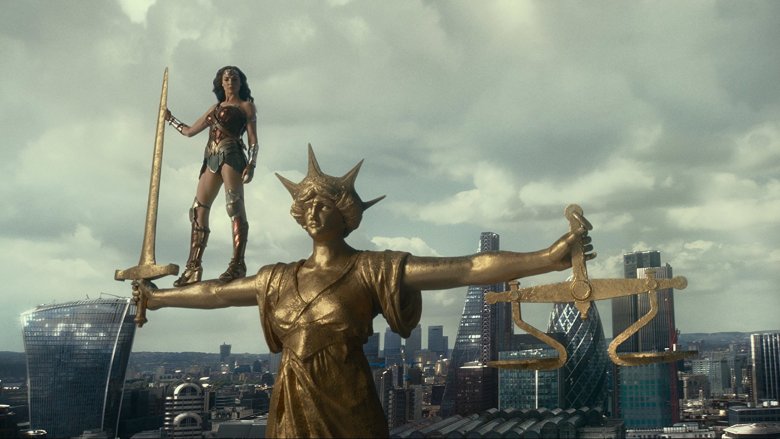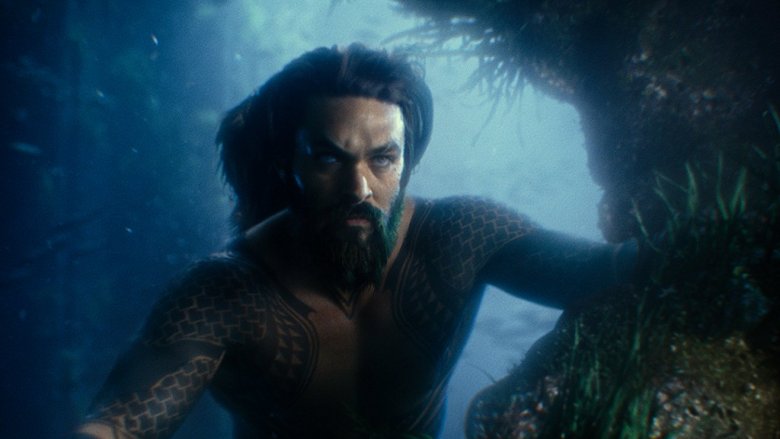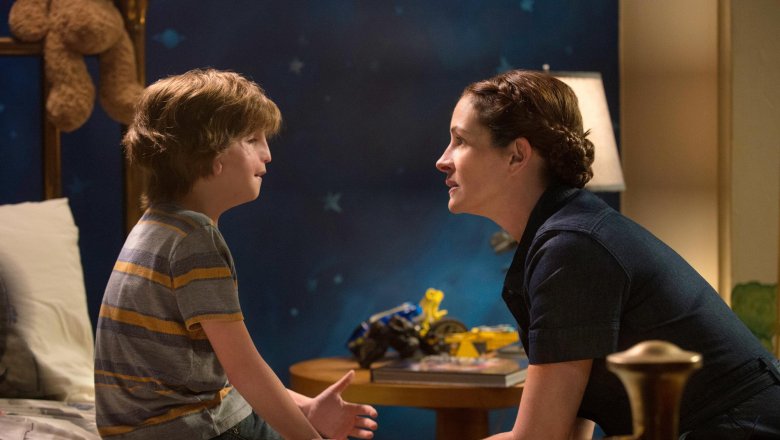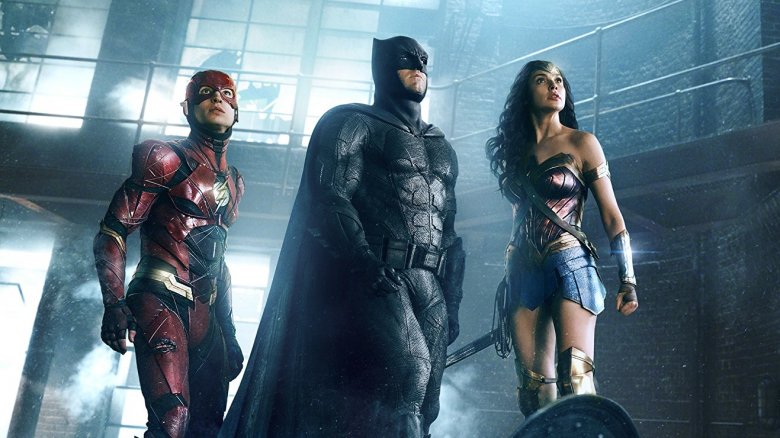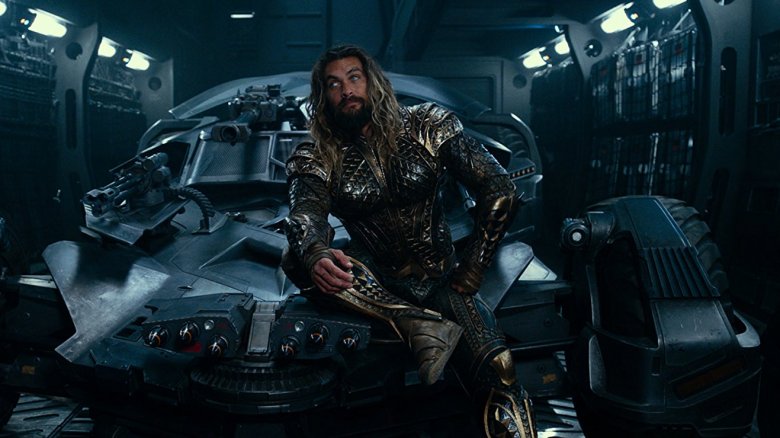What Went Wrong With Justice League At The Box Office
On paper, Justice League should have been nothing but an instant smash hit, everywhere around the world. The team-up film brought together some of the most popular heroes in the history of comics, including Superman, Batman, and Wonder Woman, for what promised to be an epic battle—but it ended up delivering deep disappointment in its opening weekend, pulling in just $94 million.
While for most of us, that kind of money is nothing to turn your nose up at, it pales in comparison to the rest of the DC Extended Universe, representing the smallest opening for the budding franchise to date. It's also only the 23rd best opening for a superhero film, and the eighth best of the year to date.
Considering Justice League's pedigree, the movie seemed like a slam dunk for a smash. So how did it all go so wrong? Here's why Justice League struggled at the box office.
The team-up was rushed
Marvel kicked off the MCU in 2008 with Iron Man, and they'd already set up Thor, Captain America, Hawkeye, and Black Widow (as well as a different version of the Hulk) before they launched into their team-up film The Avengers in 2012. DC decided to pursue a different route, setting up their shared universe after just four previous films, only giving a few of the characters backstories before bringing the whole team together.
This had a dual effect. For one thing, the film's newer characters resonated less with viewers; while Superman (Henry Cavill), Batman (Ben Affleck), and Wonder Woman (Gal Gadot) had been fleshed out, Aquaman (Jason Momoa), Cyborg (Ray Fisher), and the Flash (Ezra Miller) were all given fairly rushed intros, offering just a small tease at their stories and hampering the audience's emotional investment.
Rushing to the team-up also meant that the hype for Justice League wasn't as strong as it could have been. Marvel's strategy of giving people time to get to know the characters first only made people more excited to see them all together. Although there was a lot of discussion around Justice League's newer characters, DC may have been better off introducing them in standalone adventures.
Reviews were unkind
Much was made of Rotten Tomatoes holding Justice League's score until the day of its release, and although it wasn't as dismal as some of the conspiracy theories surrounding the choice would suggest, the movie still sits fairly low on the review aggregator with just 39 percent. While Gadot's Wonder Woman and Miller's Flash received a lot of praise, critics took issue with Affleck's grim take on Batman and said Fisher's Cyborg wasn't given enough development to draw in viewers. Critics also hit on the movie's vague and confusing plot, and its CGI-fueled villain Steppenwolf (Ciaran Hinds).
The DCEU has never exactly been a critical darling. The universe's best reviewed movie to date, Wonder Woman, currently holds a 92 percent on Rotten Tomatoes, which is impressive—but it's also the only fresh film of the grouping. The next best movie, Man of Steel, holds a mediocre 55 percent. Although Justice League managed to top the dismal scores of Batman v. Superman: Dawn of Justice and Suicide Squad, the movie's disappointing critical performance could be a turnoff for a lot of fans, especially more casual viewers. This might be part of the reason why the movie failed to meet initial box office tracking numbers, which pegged it at a $110 million opening before reviews hit the internet.
Audiences weren't fully on board
Critics tend to be harder on movies than audiences, and that was the case with Justice League, which earned a B+ CinemaScore and an 85 percent audience score on Rotten Tomatoes. Those aren't bad numbers but they also don't translate to the type of word of mouth that could help propel the movie beyond the bad press. It would have taken a lot of positive word of mouth and social media buzz to dispel the increasingly negative impression surrounding the movie, and it just didn't happen.
It was still tainted by Batman v. Superman
2016's Batman v Superman: Dawn of Justice has some loyal fans, but they're in the minority. The movie was trashed by critics and audiences with a 27 percent on Rotten Tomatoes and a B CinemaScore, the same grade as Green Lantern and Catwoman. Justice League, for better or worse, chose to build heavily on BvS, using Superman's death as a focal point for significant pieces of its characters' emotional journeys.
The fact that Justice League served as a pretty direct sequel to Batman v Superman may have rubbed some viewers the wrong way. Viewers who avoided BvS may have stayed away from Justice League because they were unsure they would understand the plot, while viewers who didn't enjoy BvS might have skipped out to avoid more of the same.
Things were shuffled around behind the scenes
Man of Steel, Batman v Superman, and Justice League director Zack Snyder is a polarizing figure. While his darker vision of the DCEU's superheroes helped to establish the universe's signature feel, it has alienated critics and divided fans. However, the whole community rallied behind him when he decided to step down from Justice League following his daughter's suicide. Avengers helmer Joss Whedon was brought on to complete the film, prompting plenty of speculation regarding the effect he'd have on the final product.
It's unclear what, exactly, Whedon changed, although reports said he was adding additional dialogue to help provide "connective tissue." Whedon ended up receiving a writing credit on the movie, meaning that a significant portion of the dialogue could be attributed to him.
Although Whedon was said to be "adher[ing] to the style and tone and the template that Zack set," the snappier, more humorous dialogue upset some fans, who felt that the movie didn't fit with the previous versions of the characters as established by Snyder. Some critics also pointed out that the movie felt like two different films that seemed to be at odds in certain scenes. Fans noticed this as well, and some even started a petition demanding to see Snyder's version on home release. Although this is highly unlikely, the petition has already amassed over 40,000 signatures.
Creative tension could have ruined the movie
Although Zack Snyder stepped down from Justice League due to a family tragedy, reports say that Warner Bros. execs debated relieving him of the franchise after the critical failure of Batman v. Superman: Dawn of Justice. According to a report citing unnamed industry insiders, higher-ups at the studio are said to have approached former president Greg Silverman on multiple occasions to try to get Snyder removed from the project and replaced with another filmmaker.
The studio reportedly decided to keep Snyder on the project to avoid the bad press that would have resulted from firing him. They'd also already invested a lot of money in prep work, which would have been lost had he been replaced with a different director. Although Snyder did stay through the majority of Justice League's production, the fact that there was reportedly tension between Snyder and the studio right off the bat could have doomed the movie from the beginning.
There were extensive reshoots
After Whedon took over for Snyder, he set about finishing up the film, which included extensive reshoots that reportedly cost as much as $25 million. Although reshoots don't always represent trouble, they do cast a shadow of doubt, in addition to all the cash they add to the film's budget.
The reshoots only helped to further highlight the conversations about Justice League's tone, with the cast and crew all offering up different comments on just how wide-ranging they were. Although producer Chfarles Roven said Whedon only ultimately reshot 15 to 20 percent of the movie, the cast's comments have been the subject of a lot of press attention, and the constantly conflicting reports may have made some fans stay away from the finished product.
Justice League's reshoots were also complicated by the cast's busy schedules, which included Cavill's work on Mission: Impossible 6. As most fans know, Cavill had to grow a mustache for the film and Paramount wouldn't allow him to shave it off, resulting in a lot of CGI work to clear off Cavill's upper lip. The end result, while an impressive feat, is still noticeable in the movie, and only added to the increasingly negative atmosphere surrounding the film.
There was a lot of bad press
The reshoots brought a lot of bad press, but Justice League has been in the weeds for other things as well. For one thing, its main star, Ben Affleck, was hit with sexual misconduct allegations after groping Hilarie Burton during an appearance on Total Request Live in 2003, which he only made worse by making an ill-timed joke while doing an interview as part of the Justice League's press tour.
Although Affleck has apologized and addressed the incident in a recent interview with The Late Show with Stephen Colbert, some fans still aren't happy with the actor, especially as more sexual harassment scandals hit Hollywood. Affleck has also frequently been dogged by rumors that he's leaving the upcoming Bruce Wayne solo film The Batman, adding to the impression of creative turmoil.
Justice League also dealt with a recent scandal over the outfits worn by Themyscira's Amazonians, with some saying that they were skimpier and more sexualized than they were in this summer's Wonder Woman. The controversy caused an uproar on social media, with one tweet pointing out the difference earning over 20,000 retweets. Although some of the film's stars have defended the costume change, it still added to the movie's negative press.
The marketing was mixed
Justice League's trailers did nothing to help with the mixed messages that the reshoots sent. The first glimpses of the film fit with the darker tone of the universe; however, the San Diego Comic-Con trailer, coming in at a whopping four minutes, flipped that on its head, introducing a much more comical and lighter take.
Although that trailer was also positively received by many fans, the tonal whiplash in the marketing materials made it so that audiences didn't know what they were getting. Fans of the darker tone may have been turned off by the SDCC trailer, while people looking for a lighter superhero movie likely didn't appreciate the earlier trailers.
Clear and consistent marketing is growing increasingly important as viewers are inundated with more big-budget movies, and although Justice League's trailers were impressively made, they traveled too far between genres to properly signal to viewers what to expect.
And Superman was pretty much left out
Warning: This entry contains spoilers for Justice League.
It was the world's biggest open secret that Superman, despite his apparent death in Batman v Superman, would be back for Justice League. Cavill's name was listed in the press, and his social media accounts were covered in teases of him on the set and references to the film. However, in a misguided attempt at keeping the mystery alive, Superman was left out of almost all of the movie's marketing materials.
Clark Kent did pop up in the movie's Heroes trailer in what appeared to be a dream sequence courtesy of Amy Adams' Lois Lane, but other than that, he didn't appear in much of Justice League's promo material. Leaving out their biggest superhero meant the studio was basically shooting themselves in the foot—hardcore fans still knew Superman would be back, but people who were less in the know may have been inclined to skip the movie.
Superman's resurrection in the movie also failed to live up to the hyper-secrecy the marketing material suggested. There wasn't all that much unexpected to his comeback, and despite a brief fight with his teammates, he pretty quickly reverted back to the Superman audiences know and love. Some quick glimpses of Superman in action could have done a lot for Justice League's marketing campaign without spoiling much of the movie's plot.
Wonder Woman sent expectations through the roof
Wonder Woman broke the DCEU review curse, earning the love of critics and audiences and even warranting an Oscar campaign from Warner Bros. As comScore's senior media analyst Paul Dergarabedian noted in an interview with Variety, Wonder Woman's success may have set unreasonably high expectations for Justice League.
"In the wake of the much-needed home run that was Wonder Woman, the momentum was with the brand and great expectations place on the very broad shoulders of Justice League to keep that train moving," he said. "With the rightfully heightened expectations for a movie of this magnitude comes a greater scrutiny of both the quality of the movie as determined by critics and of course the profitability of the film."
While Dergarabedian did note that the movie still pulled in a lot of viewers, its mediocre reviews and mixed reactions from the audience failed to capitalize on Wonder Woman's buzz. People were expecting more from the DCEU after it proved its prowess with the summer box office smash, and Justice League didn't live up to the hype.
The superhero market may be oversaturated
Justice League opened just three weeks after Thor: Ragnarok, one of the closest superhero movie pairings to date. Ragnarok, which placed third in Justice League's opening weekend with $21.7 million, could have taken some viewers away from the movie, and other filmgoers may have been superhero-ed out after seeing the much better-received project earlier this month.
Ragnarok and Justice League's close release gets towards a bigger problem afflicting Justice League— the superhero market may be oversaturated. Although superhero films still consistently do well at the box office, both DC and Marvel are stocking up the calendar for years to come with superhero flicks, including standalones for each of Justice League's heroes.
In addition to all the big-screen superheroes, they're also taking over the small screen. Ezra Miller's Barry Allen is in direct competition with the CW's TV version of the character, played by Grant Gustin, and the CW is also home to three (and soon four) other DC shows. Justice League's premiere weekend also saw the debut of The Punisher on Netflix, and came just a few days before Marvel's Runaways hit Hulu.
With so much superhero content already in theaters and on TV and even more on the way, the outings are starting to feel less and less like big events. This pulls away from the excitement and makes viewers less likely to turn out, especially during opening weekend. Superheroes may be losing some of their powers at the box office.
There was unexpected competition
Justice League has the benefit of being (mostly) family-friendly, holding a PG-13 rating but still featuring few enough scary sequences that it's safe for superhero-loving kids. However, the movie may have lost out on the family audience in its first week to an unexpected bit of competition from the Owen Wilson, Julia Roberts, and Jacob Tremblay-starring Wonder, which blew away expectations with a hugely impressive $27.5 million opening against just a reported $20 million budget.
Wonder was not expected to be a huge box office draw, but the feel-good film offered tearjerking family entertainment that may have drawn audiences away from Justice League in its second week at the box office as well, when Pixar's Coco took the top spot during the lucrative Thanksgiving frame.
People may be getting tired of the DCEU
Hardcore fans are definitely still turning out for the DCEU, but more casual moviegoers may be starting to tire of the drama. Bad press and bad reviews have given the entire universe a negative reputation, and some people may be starting to get turned off.
This could be something which prevents Justice League earning a solid domestic gross. Aside from Wonder Woman, DCEU films have a history of steep second-week drops, with Man of Steel falling 64.6 percent, Batman v. Superman falling 69.1 percent, and Suicide Squad falling 67.4 percent.
There are signs pointing to Justice League potentially being successful in the weeks to come, though. The movie saw just a 14.8 percent drop between Friday and Saturday, a number that's especially impressive when held up against Batman v Superman's 37.9 percent drop and Suicide Squad's 40.6 percent drop. That hints that word of mouth for this movie could be more on par with Man of Steel, which fell 17.5 percent, and Wonder Woman, which fell only 7.8 percent.
With Justice League's second frame taking place over the lucrative Thanksgiving weekend, hopefully the film will be able to hold strong throughout the rest of the month and set the DCEU up for success in the future. However, if it doesn't, it could suggest that people are starting to tire of the struggling films.
It could have a ripple effect
If Justice League doesn't leg out or do well overseas, the DCEU's future could be in flux. According to reports, Miller's upcoming Flashpoint movie and Fisher's solo Cyborg outing could both be scrapped, as could Cavill's Man of Steel 2. Warner Bros. may decide to step back from giving each Justice League member their own film, focusing instead on more standalone material.
While that may be worrisome for some fans, the DCEU may be better off taking time to focus on individual films, handing the reins to passionate directors and writers for some of DC's marquee heroes. The studio still has quite a few upcoming movies planned, and they don't appear to be slowing down anytime soon. Focusing more on establishing individual characters before moving on to another team-up seems like it would be a smart decision.
DC, like most comic book studios, is very secretive when it comes to discussing their future plans, so it could be a while before we know what exactly is going to happen with the future of the DCEU. With only a few films on DC's upcoming calendar holding release dates, directors, or stars, it should be interesting to see where the universe goes from here.
